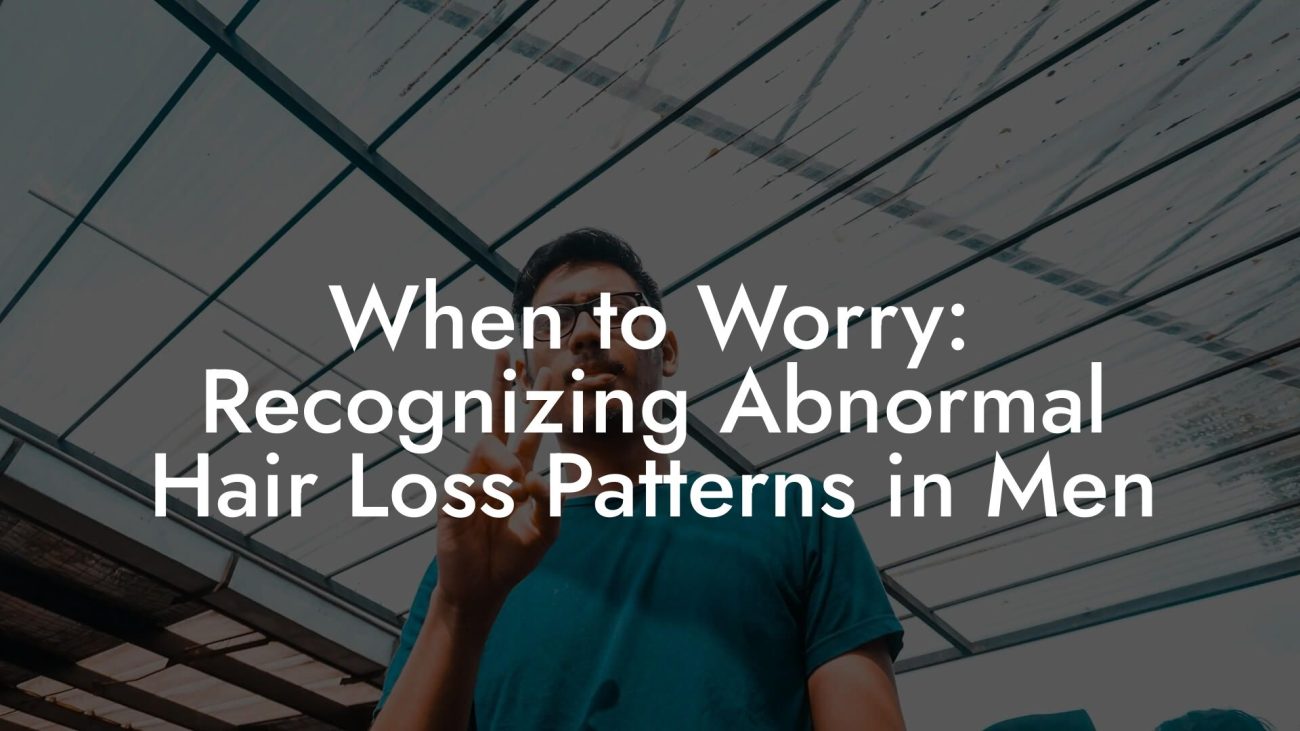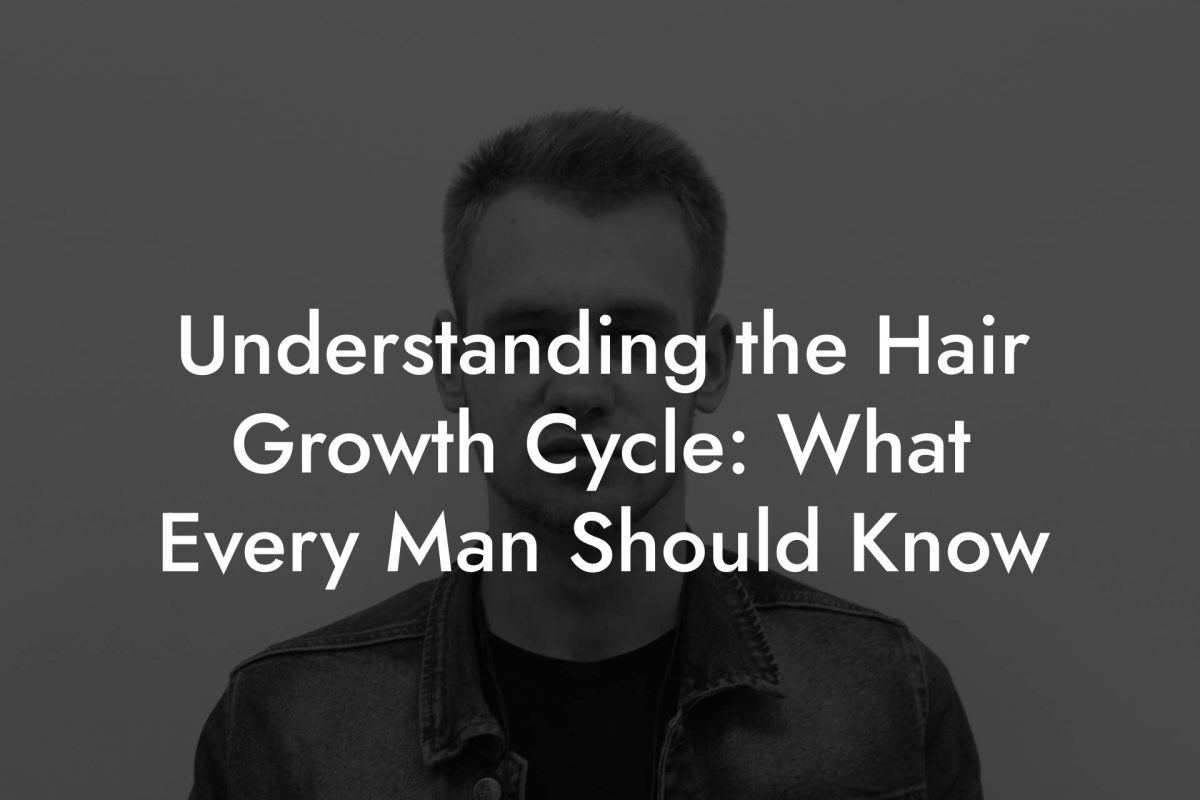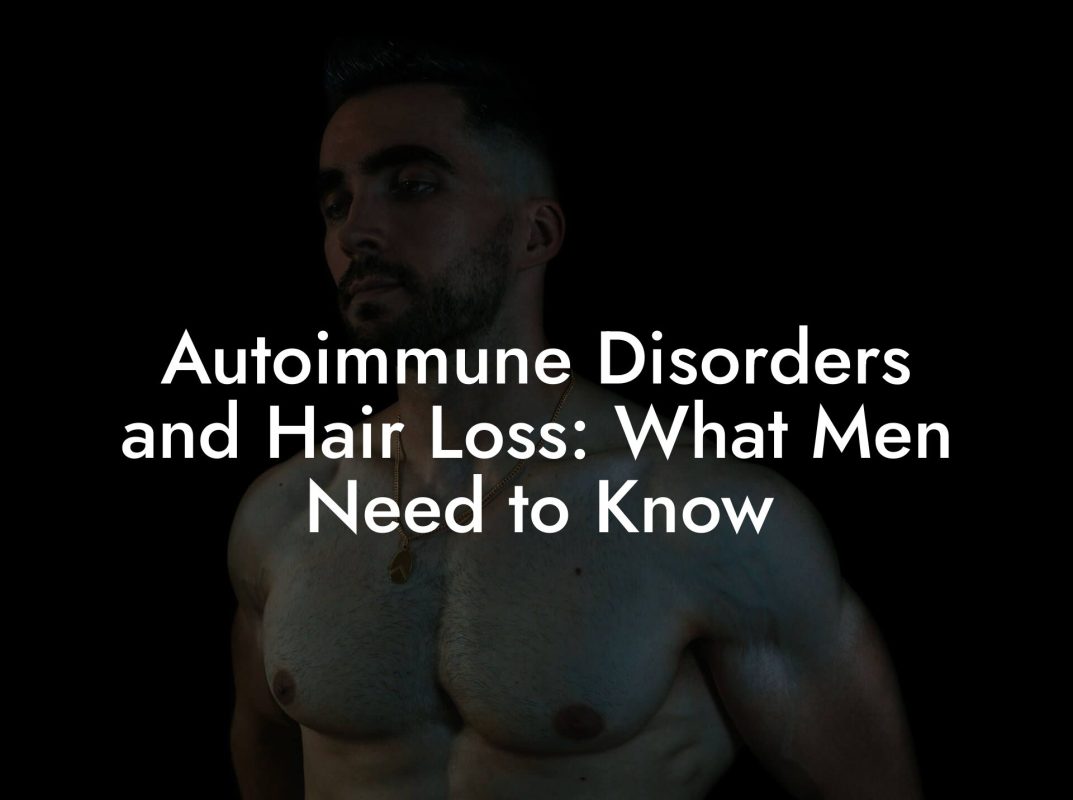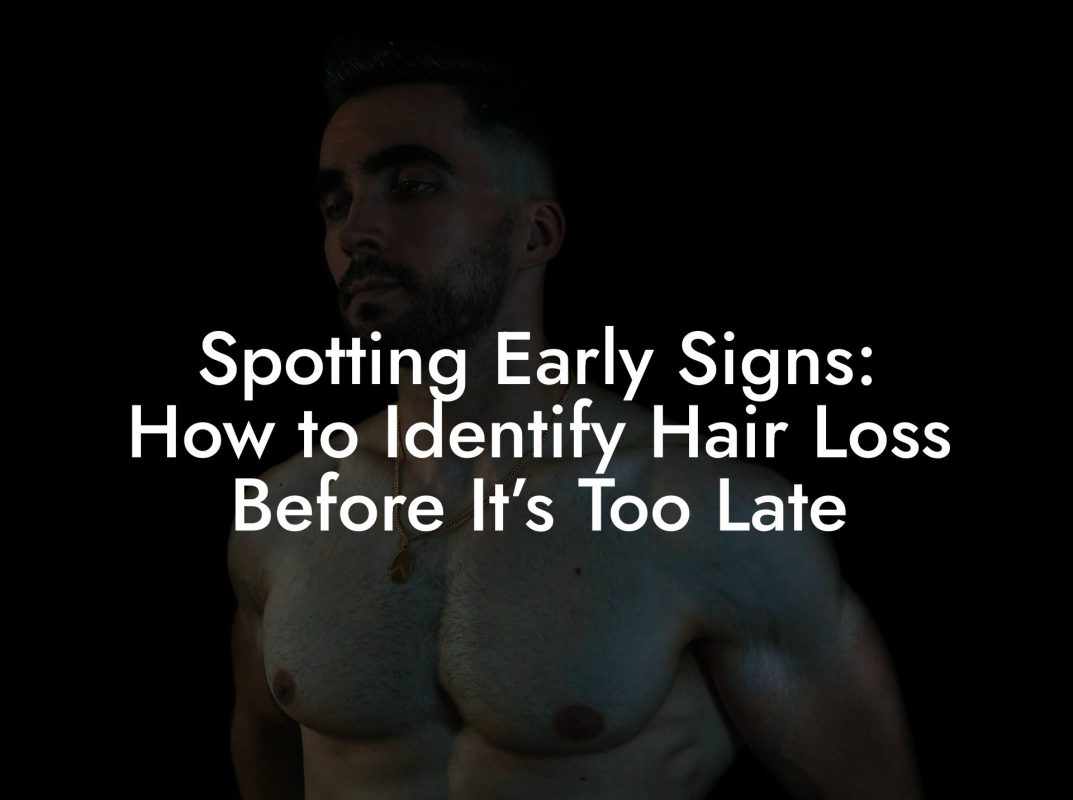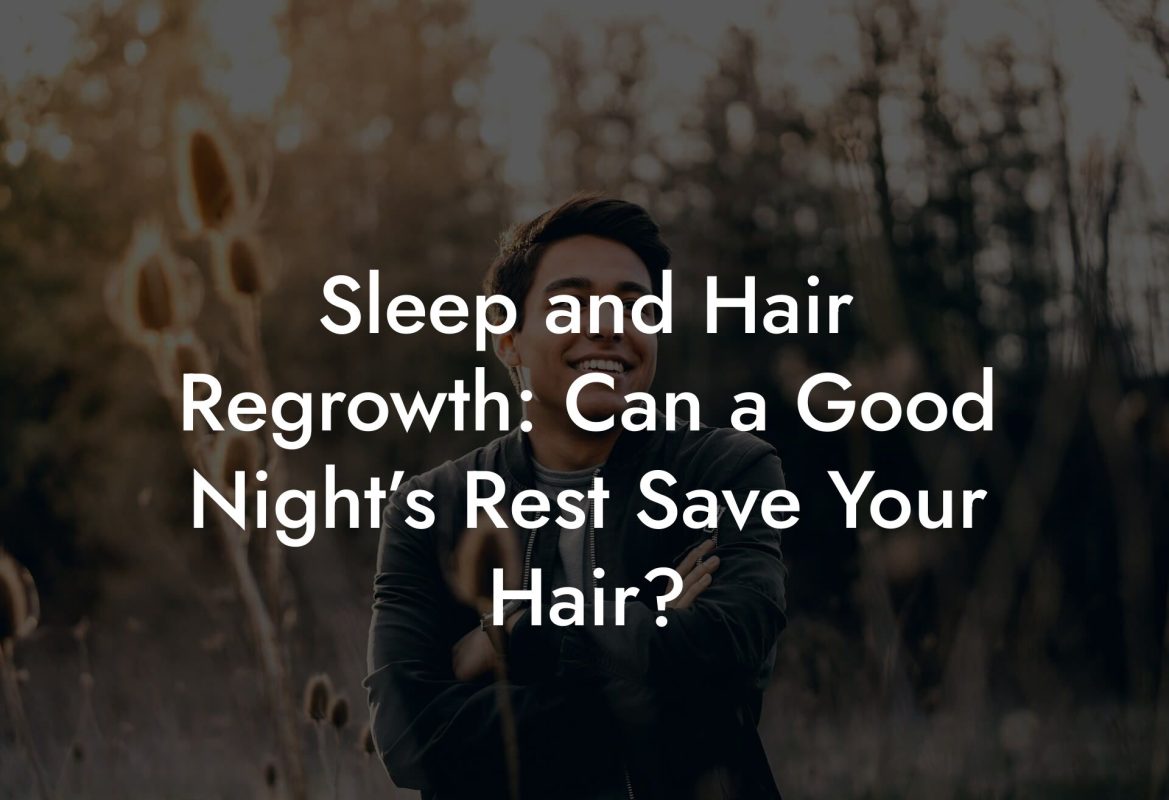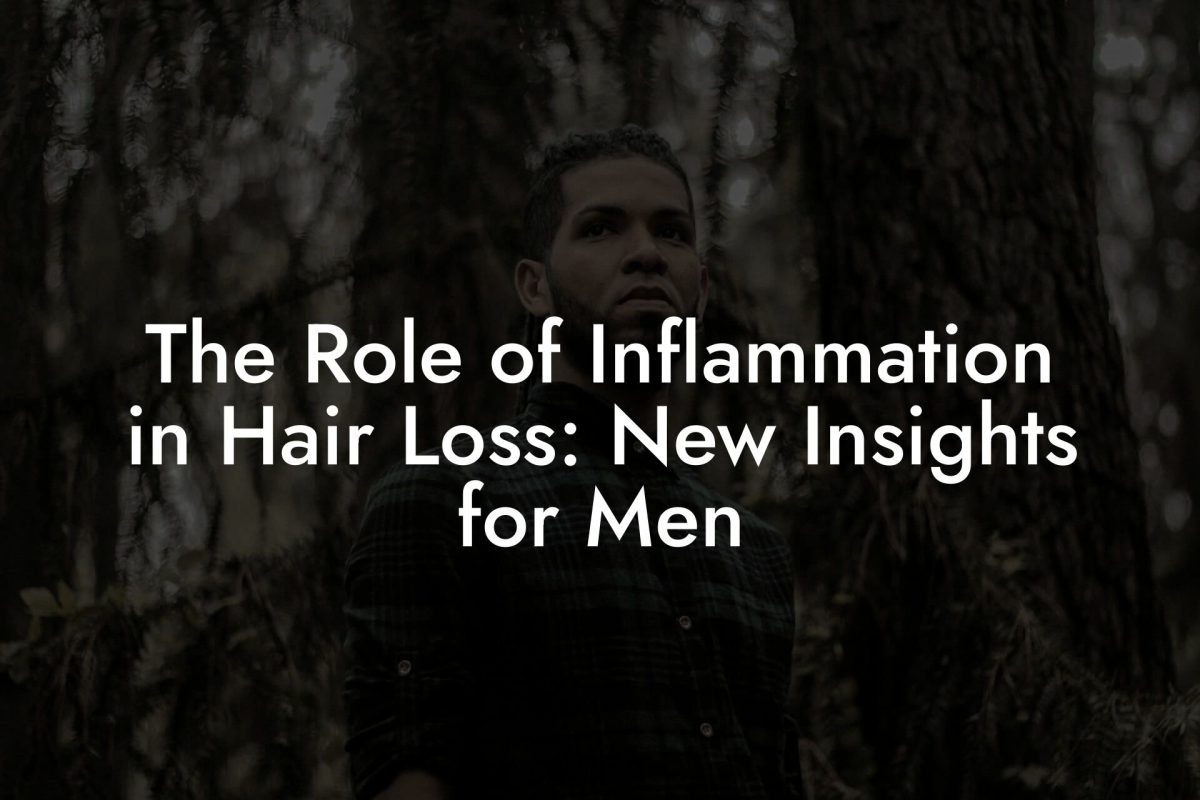Hair Loss Library
Unraveling Scalp Health: Signs Your Scalp Needs Extra Care
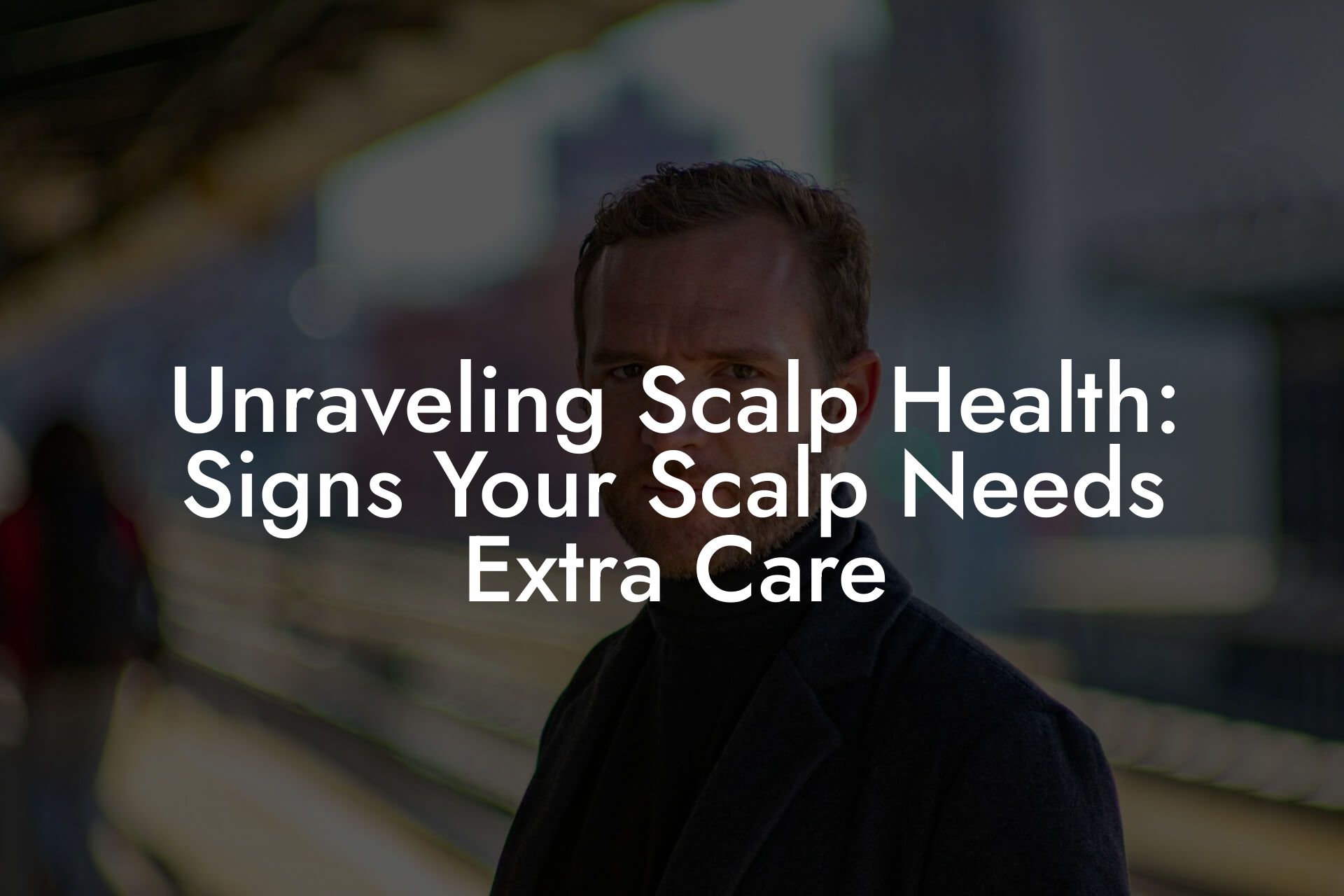
Ever looked in the mirror and thought, “Dude, your scalp is trying to send you a text message!”? Whether you're rocking a thick mane or noticing that your hairline is playing peek-a-boo, your scalp deserves a standing ovation—and perhaps a little extra TLC. At Mane Matrix, we get it: no one wants to dance around expensive consultations or awkward moments when discussing your head’s “floor plan.” So, buckle up for a wild ride into the world of scalp health, where we break down the signs that your scalp needs extra care, serving up expert tips in a language that’s as chill and witty as your favorite meme.
What Exactly Is Scalp Health and Why Should You Care?
Let’s face it: your scalp is like the unsung hero of your style. Hidden under your luscious locks (or those stylishly thinning strands), your scalp is the foundation of every good hair day. Scalp health refers to the overall condition of the skin on your head. When it's in tip-top shape, it promotes vibrant hair growth and a smooth, itch-free feeling. But when things go south—think dryness, oiliness, flakiness, or inflammation—it’s like your scalp is throwing a tantrum.
Caring for your scalp isn’t just about avoiding an embarrassing “dandruff dance” in public. A healthy scalp is the engine behind strong hair follicles and can help you fend off hair loss and other unsightly issues. Whether you’re battling premature balding or just want to keep your hair game strong, tuning in to your scalp’s needs is crucial.
In today’s fast-paced world, where stress and pollution are constant adversaries, treating your scalp right isn’t a luxury—it’s a must. So, if you've ever wondered why your scalp sometimes feels like it's staging a protest (complete with itch and flake signs), keep reading. We're about to unveil the signals that mean your scalp is begging for some extra love.
Signs Your Scalp Is Crying Out for Help
Your scalp has its own quirky way of communicating when it’s not feeling the love. Here are some telltale signs that your scalp might need a little extra care:
1. Itching That Won’t Quit
Ever experience an itch that feels like it’s plotting a hostile takeover of your head? Constant scratching can be more than just annoying—it might signal an irritated or inflamed scalp. Whether it's due to dryness, sensitivity, or an allergic reaction, chronic itchiness is a red flag.
2. Flakes That Are More Than Just Confetti
If you’re finding white, flaky bits on your shoulders that resemble a snow globe in summer, your scalp could be suffering from dandruff or seborrheic dermatitis. These pesky flakes are not only a sign of scalp distress but also a clue that your skin's moisture balance might be off.
3. Redness and Irritation
Notice any redness or persistent irritation on your scalp? These are often signs of inflammation, which might be triggered by harsh haircare products, environmental factors, or even stress. When your scalp is inflamed, it's like an angry protest against the usual daily grind.
4. Unusual Hair Fall or Thinning
Hair loss is a topic that sends shivers down every man’s spine. If you're noticing more hairs in your brush than usual or seeing thinning patches appear, your scalp might be struggling with issues like poor circulation, hormonal imbalances, or even just the natural aging process. Recognizing these signs early can help you take proactive measures before the situation escalates.
5. Excess Oiliness
On the flip side, some scalps can be too excited about producing oil. An overly oily scalp can lead to clogged hair follicles and even contribute to conditions like acne along the hairline. It’s a balancing act—too dry or too oily both spell trouble.
Recognizing these signals is the first step in your journey toward a healthier scalp. Think of it as your skin’s way of texting you “SOS!”—so don't ignore it.
The Usual Suspects: Common Scalp Problems Among Men
Men, in particular, encounter a myriad of scalp issues that can sometimes mirror the plot twists of your favorite binge-worthy series. Here are some common culprits:
Dandruff and Dry Scalp
Dandruff is not just an annoying flake issue—it’s a sign that your scalp might be dehydrated or reacting to a buildup of dead skin cells. Dry scalp, often resulting in flaking and irritation, may be linked to environmental stressors, hot showers, or even your favorite shampoo that’s a tad too harsh.
Oily Scalp Syndrome
For some, an overly oily scalp is the nightmare scenario. Excess sebum production can lead to scalp acne and clogged follicles, making it tougher for hair to grow healthy and strong. Regular cleansing and a balanced diet are your best allies here.
Psoriasis and Seborrheic Dermatitis
Conditions like psoriasis and seborrheic dermatitis can wreak havoc on scalp health. These autoimmune-related issues not only cause red, scaly patches but can also lead to persistent itching and discomfort. Managing these conditions often requires a combination of medicated shampoos and lifestyle adjustments.
Folliculitis and Infections
Folliculitis, an infection of the hair follicles, can turn your scalp into a battleground of red bumps and pus-filled lesions. Often caused by bacteria, fungi, or even overzealous sweating, it’s a condition that calls for prompt treatment to prevent scarring and further damage.
Each of these issues has its own set of triggers and treatments, emphasizing why personalized scalp care is essential. By understanding what’s happening beneath the surface, you can tailor your haircare routine to meet your scalp's unique needs.
The Science Behind Scalp Health: It’s Not Just About the Hair
Beneath that head-turning hair lies a complex network of follicles, glands, and skin layers that work together to maintain scalp health. When any part of this system goes off-kilter, it can lead to issues that affect not only the look of your hair but also its strength and vitality.
The scalp is a dynamic ecosystem influenced by various factors including genetics, diet, stress levels, and even the water you wash your hair with. For instance, hard water loaded with minerals can clog your pores, while the wrong shampoo or conditioner might strip your scalp of its natural oils.
Hormones also play a starring role. Testosterone and its derivative DHT (dihydrotestosterone) can affect hair follicle sensitivity, leading to conditions like androgenetic alopecia—the fancy term for male pattern baldness. Additionally, lifestyle factors like sleep deprivation, smoking, and alcohol consumption can compromise the regenerative capabilities of your scalp.
Understanding the intricate balance of your scalp’s microenvironment can empower you to make informed decisions about your haircare regimen. After all, a little science goes a long way in saving your strands.
Expert Tips and Tricks for Optimal Scalp Care
So, what’s the secret sauce to keeping your scalp in stellar shape? Here are some expert-recommended tips and tricks that blend science with a pinch of lifestyle magic:
Choose the Right Shampoo and Conditioner
Start with the basics: your shampoo and conditioner are your frontline defenders. Look for products that are free from harsh chemicals like sulfates and parabens. Opt for ingredients such as tea tree oil, aloe vera, and salicylic acid that are known to combat dandruff and soothe irritation without stripping away natural moisture.
Don’t Overwash (Or Underwash) Your Scalp
It might sound counterintuitive, but washing your hair too frequently can rob your scalp of its protective oils, while not washing it enough can lead to a buildup of grime and sebum. Aim for a balanced routine—typically 2-3 times a week should do the trick, but adjust based on your hair type and activity level.
Scalp Massages: Your Daily Dose of TLC
Think of a scalp massage as a mini-vacation for your head. A gentle massage increases blood flow to your scalp, rejuvenates hair follicles, and even spreads natural oils evenly across your hair. Use your fingertips or a specialized scalp massager while shampooing to get the most benefits.
Exfoliation Isn’t Just for Your Face
Just like your skin, your scalp can benefit from occasional exfoliation. Use a gentle scrub or an exfoliating brush designed for the scalp to remove dead skin cells and product buildup. Do this once a week to promote a healthier environment for hair growth.
Monitor Your Diet and Hydration
What you eat plays a sneaky but crucial role in scalp health. Foods rich in omega-3 fatty acids, zinc, and vitamins (especially vitamin E and biotin) can support robust hair growth and keep your scalp happy. And let’s not forget about water—staying hydrated ensures your skin, including your scalp, remains supple and well-nourished.
Incorporating these expert tips into your daily routine can be the game-changer you need to maintain a balanced, irritation-free scalp, letting you focus on what matters most: looking and feeling confident.
DIY Scalp Treatments at Home: Get Your Hands (Gently) Dirty
If you’re the type who loves a good DIY project—especially one that benefits your hair health—you’re in luck. There are plenty of at-home treatments that pack a punch in the fight against scalp issues.
Tea Tree Oil Treatment
Tea tree oil is a powerhouse when it comes to fighting dandruff and soothing an irritated scalp. Add a few drops to your shampoo or dilute it with a carrier oil like coconut oil and massage it directly onto your scalp. Its natural antifungal properties make it a popular choice among those looking to quell pesky flake attacks.
Aloe Vera Gel Mask
Aloe vera isn’t just for sunburn relief—it’s a hydration superstar for your scalp as well. Apply pure aloe vera gel directly to your scalp, let it sit for about 20 minutes, then rinse thoroughly. This cooling treatment not only soothes irritation and reduces inflammation but also helps maintain moisture balance.
Apple Cider Vinegar Rinse
Buildup be gone! Apple cider vinegar naturally helps restore the pH balance of your scalp and can reduce itchiness caused by product residue. Mix one part apple cider vinegar with two parts water, apply it after shampooing, and let it sit for a few minutes before rinsing off. Your scalp will thank you with renewed clarity and less grease.
Scalp Yoga and Stress-Busting Techniques
Yes, you read that right—scalp yoga. While not a formal practice, dedicating a few minutes to gentle head massages, deep breathing, or even meditative moments before bed can significantly reduce stress-induced hair issues. A calm mind leads to a calm scalp, and that’s the vibe we’re aiming for.
These DIY treatments offer an accessible way to nurture your scalp without breaking the bank. So next time your scalp starts sending out distress signals, you’ll know exactly what to do.
Professional Analysis: How Mane Matrix Helps You Diagnose Scalp Woes
Let’s talk shop: Mane Matrix isn’t just a pretty name. We’re all about giving you the expert analysis you need to understand your scalp’s unique story—without the awkwardness or the hefty price tag of traditional consultations. Using advanced diagnostic tools and a wealth of expertise, we help pinpoint the issues your scalp is dealing with, from hormonal imbalances to environmental stressors.
At Mane Matrix, our approach is all about demystifying the often-confusing signals your scalp sends. Whether you're experiencing premature hair loss, excessive oiliness, or stubborn dandruff, our team of specialists breaks it down in plain language. We believe that understanding your scalp’s needs is the cornerstone to crafting a personalized care routine that actually works.
Our non-invasive analysis leverages high-tech imaging and expert interpretation to deliver insights that guide you toward the most effective treatments. Think of it as a roadmap to healthier hair, where every step is designed with your comfort, style, and budget in mind.
Resources and Community Support: Your Next Steps
Embarking on a journey to optimal scalp health doesn’t have to be a solo adventure. There’s a vibrant community out there—and a trove of resources—to help you along the way.
Explore our blog for expert advice, DIY tips, product recommendations, and the latest research on scalp health. Connect with fellow men who are navigating the ups and downs of hair loss and scalp care. Whether it’s joining a dedicated online community, following us on social media, or attending local meet-ups, sharing your experience can be both empowering and enlightening.
Remember, every scalp is unique, and finding the right resources for your needs is key. Mane Matrix offers personalized consultations, detailed guides, and a network of support that puts you in the driver’s seat of your hair care journey. Your next step could be as simple as reaching out for a friendly chat or diving into our curated content that demystifies the science of scalp health.
FAQs: Unraveling the Mysteries of Scalp Health
Got questions? We’ve got answers. Here are some of the most frequently asked questions about scalp health and when it’s time to give your scalp some extra care.
1. What are the early signs that my scalp needs extra attention?
Early signs include constant itching, flaking (dandruff), redness, and unusual hair fall or thinning. These symptoms indicate that your scalp could be dehydrated, inflamed, or reacting to stress and products.
2. How often should I wash my hair to maintain a balanced scalp?
It depends on your hair type and lifestyle. Generally, washing 2-3 times a week is recommended, but if you have an oily scalp or live in a polluted area, you might need to adjust your routine accordingly.
3. Can dietary changes really affect my scalp’s condition?
Absolutely. A nutrient-rich diet that includes omega-3 fatty acids, vitamins, and antioxidants can boost hair follicle health and reduce inflammation, leading to an overall healthier scalp.
4. What role does stress play in scalp health?
Stress can trigger hormonal fluctuations that affect sebum production and hair growth. It may also lead to skin inflammation, making it a significant factor in scalp care.
5. Are there specific products recommended for men facing hair loss?
Yes, look for shampoos and conditioners that target hair thinning and scalp sensitivity. Products with natural ingredients like tea tree oil, aloe vera, and biotin can support both scalp health and hair strength.
6. Can I really treat scalp issues at home, or do I need professional help?
While many scalp issues can be managed with DIY treatments and proper hair care routines, persistent or severe issues may require professional analysis. Mane Matrix is here to help diagnose and guide you properly.
Your Path to Empowered, Radiant Scalp Health
Picture this: you’re not only taking care of your hair but embracing a lifestyle that feeds both your confidence and your overall well-being. Your scalp is like the control center of your style, and when it’s in prime condition, your hair follows suit. No more scratching, no more hiding under hats—just a smooth, healthy scalp that sets the stage for hair that looks as awesome as you feel.
It all begins by paying attention to those subtle hints your scalp drops along the way. From the unexpected itch during a Netflix binge to the flaking that appears during your morning mirror check, these signals are your scalp’s way of saying, “Hey, I need a little extra care, please!”
Remember, building a healthy scalp routine doesn’t mean overhauling your life overnight. It’s about small changes—a switch in shampoo, a couple of minutes dedicated to scalp massages, a tweak in your diet, and even embracing DIY remedies—that gradually lead to a major glow-up. Empower yourself with knowledge, lean on resources like Mane Matrix, and be part of a community that values genuine hair health over fleeting trends.
So, whether you’re already noticing signs of your scalp calling for help or simply want to keep your hair game strong as you navigate the hustle of modern life, know that every step you take is a step toward a healthier, happier you. Your scalp’s journey to radiance is a work in progress—and with the right care and a little expert guidance, it’s one heck of a transformation waiting to happen!
Embrace the process, share your victories with your community, and remember that your Mane Matrix family is here to support you every step of the way. Your empowered, radiant scalp is not just a dream—it’s a reality within your reach. Now, go ahead and show the world that when your scalp feels good, you feel unstoppable.
If you loved this article... Dive deeper into the world of mens hair loss with our most popular sections. If there is anything you think is missing or anything you would love for us to write about, just give us a shout.
Why Am I Losing Hair? Unpacking the Science Behind Men’s Hair Loss
The Ultimate Guide to Male Pattern Baldness: Causes and Clues
Hormones & Hair: How Testosterone Impacts Hair Loss in Men
Genetics vs. Lifestyle: What’s Really Causing Your Hair Loss?
Stress and Strands: Exploring the Link Between Anxiety and Hair Loss
Decoding Androgenetic Alopecia: What Every Man Needs to Know
How Aging Affects Your Hair: Understanding the Natural Process
The Role of Diet in Hair Health: Nutrients That Prevent Hair Loss
Environmental Factors: How Pollution and Toxins Trigger Hair Loss
Medical Conditions and Hair Loss: What’s Normal and What’s Not?
The Impact of Medications on Men’s Hair: What You Should Ask Your Doctor
Unraveling Scalp Health: Signs Your Scalp Needs Extra Care
Hair Loss Myths Busted: Separating Fact from Fiction
The Role of Inflammation in Hair Loss: New Insights for Men
Sleep and Hair Regrowth: Can a Good Night’s Rest Save Your Hair?
How Smoking and Alcohol Affect Men’s Hair: A Deep Dive
Understanding Diffuse Thinning vs. Pattern Baldness in Men
Innovative Research: The Future of Hair Loss Studies for Men
Spotting Early Signs: How to Identify Hair Loss Before It’s Too Late
Autoimmune Disorders and Hair Loss: What Men Need to Know
The Science Behind Hair Follicle Miniaturization Explained
How Your Lifestyle Choices Impact Your Hair’s Future
Understanding the Hair Growth Cycle: What Every Man Should Know
When to Worry: Recognizing Abnormal Hair Loss Patterns in Men
The Intersection of Genetics and Environment in Male Hair Loss






